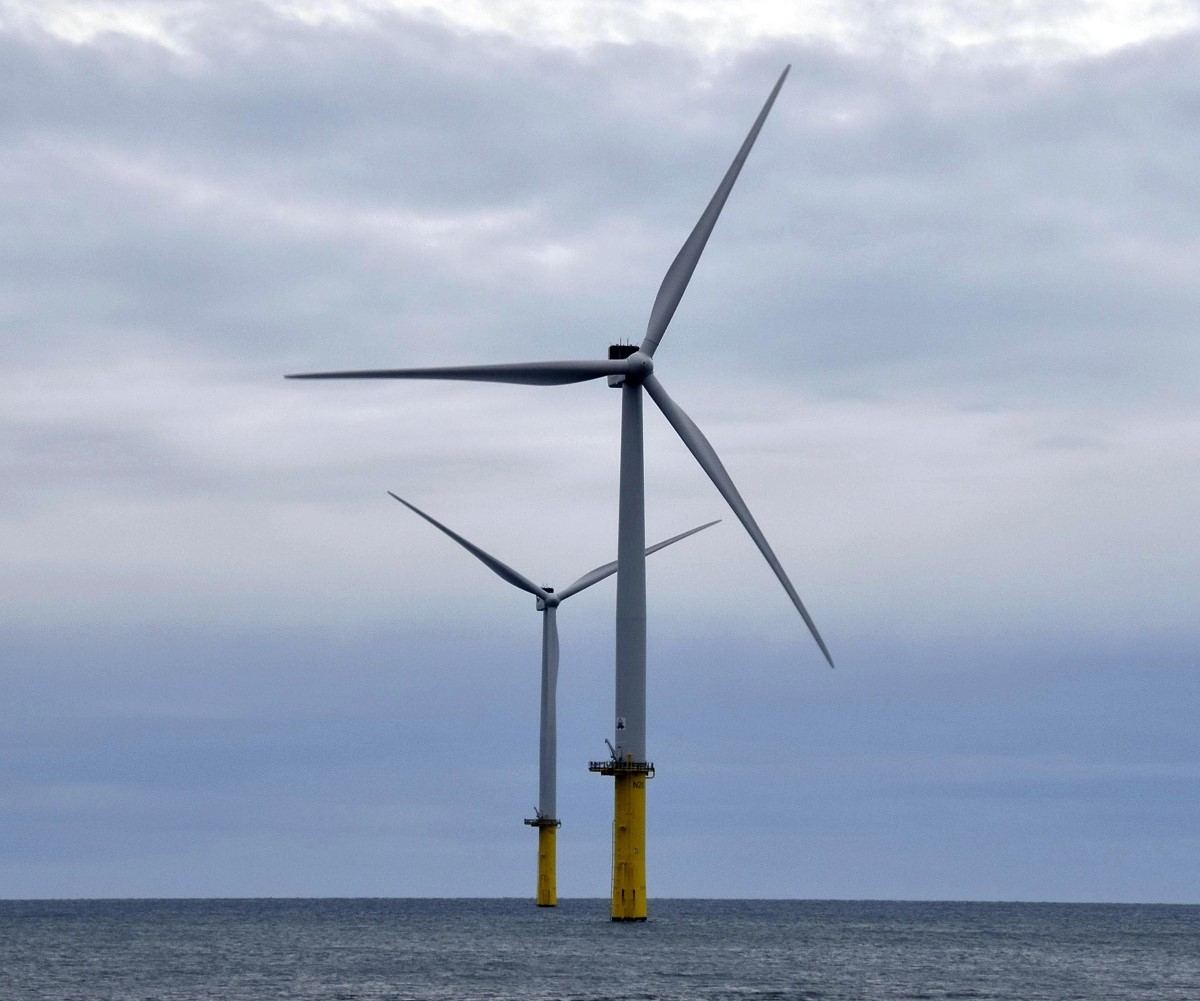
Wind turbines are seen near Noshiro, Akita Prefecture, in December.
16:58 JST, March 2, 2023
The “creation of sustainable oceans” to help achieve a carbon-neutral society is expected to be a pillar of the government’s updated Basic Plan on Ocean Policy, The Yomiuri Shimbun has learned.
According to a draft of the new five-year plan that will set the guidelines for the government’s maritime policies from fiscal 2023 to fiscal 2027, the government intends to push ahead with a legal framework for offshore wind power generation in Japan’s exclusive economic zone.
A draft of the basic plan might be released as early as next week, after which there will be a period of public consultation. The Cabinet hopes to approve the plan in April at the earliest.
The main focus of the current basic plan is “comprehensive maritime security.”
According to the draft of the new plan, the nation’s maritime interests are facing “severe threats and risks like never before,” including repeated incursions into Japanese territorial waters by China Coast Guard vessels.
The draft includes plans to establish guidelines to place the Japan Coast Guard under the command of the defense minister in the event of an armed attack on Japan, and to conduct joint exercises between the JCG and the Self-Defense Forces based on such scenario. The draft also states the system for sharing maritime surveillance information between the JCG and the SDF will be strengthened.
The draft also includes a plan to develop cutting-edge technologies such as autonomous underwater vehicles and calls for promoting research and development for dual-use technologies that can be harnessed for military and civilian purposes.
The draft describes offshore wind power generation as key to achieving the goal of making renewable energy a main source of power.
Wind turbines in Japanese territorial waters are already being used to generate electricity, but the process of coordinating with local authorities and fishery operators is time-consuming.
The government wants to install large numbers of floating wind turbines that do not need to be fixed to the sea floor in Japan’s exclusive economic zone. The draft plan calls for setting targets for the introduction of such turbines.
The draft also calls for the construction of “carbon-neutral ports” for the importation and storage of hydrogen and ammonia, and the development of technologies to transport such materials.
Top Articles in Business
-

Prudential Life Insurance Plans to Fully Compensate for Damages Caused by Fraudulent Actions Without Waiting for Third-Party Committee Review
-

Narita Airport, Startup in Japan Demonstrate Machine to Compress Clothes for Tourists to Prevent People from Abandoning Suitcases
-

Japan, U.S. Name 3 Inaugural Investment Projects; Reached Agreement After Considerable Difficulty
-

Toyota Motor Group Firm to Sell Clean Energy Greenhouses for Strawberries
-

SoftBank Launches AI Service for Call Centers That Converts Harsh Customer Voices into Softer Voices
JN ACCESS RANKING
-

Japan PM Takaichi’s Cabinet Resigns en Masse
-

Japan Institute to Use Domestic Commercial Optical Lattice Clock to Set Japan Standard Time
-

Israeli Ambassador to Japan Speaks about Japan’s Role in the Reconstruction of Gaza
-

Man Infected with Measles Reportedly Dined at Restaurant in Tokyo Station
-

Videos Plagiarized, Reposted with False Subtitles Claiming ‘Ryukyu Belongs to China’; Anti-China False Information Also Posted in Japan




















